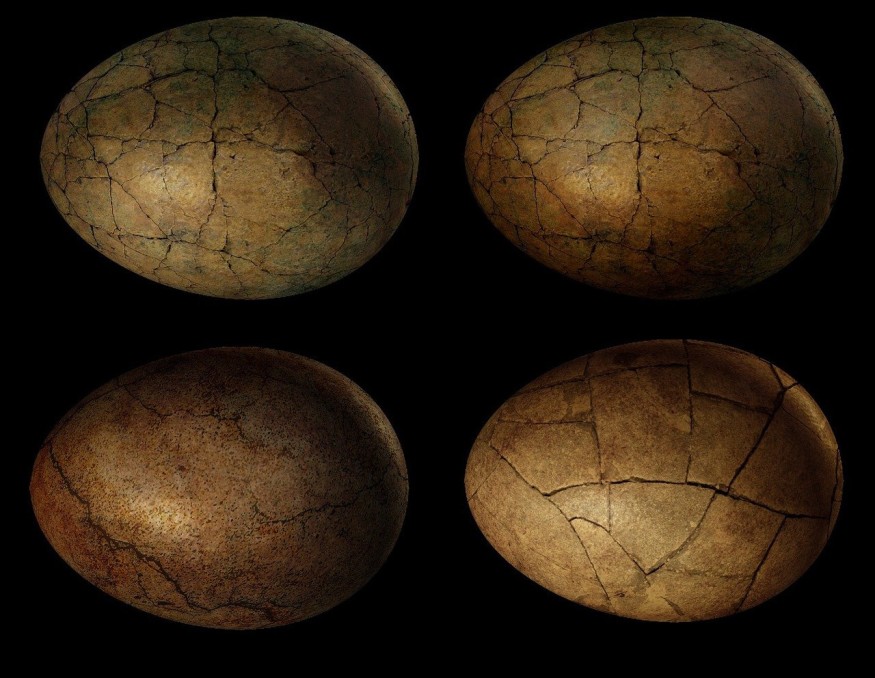A large asteroid hit Earth almost 66 million years ago and contributed to the mass extinction of dinosaurs. But now, researchers are debating whether dinosaurs did indeed go extinct in a bang or a whimper.
Phys.org reports that scientists from China unearthed 2-million-year-old dinosaur eggs, which revealed new insights about the extinct reptiles. They assessed 1,000 fossilized dinosaur eggs and eggshells from Shanyang Basini in central China and found that dinosaurs had low biodiversity prior to the asteroid impact.

Fossilized Eggs Show Low Diversity Among Dinosaur Species
Scientists have been studying the extinction of dinosaurs millions of years ago and researchers from the Chinese Academy of Sciences' Institute of Vertebrate Paleontology and Paleoanthropology (IVPP) may finally have an answer.
They presented evidence in their study "Low Dinosaur Biodiversity in Central China 2 Million Years Prior to the End-Cretaceous Mass Extinction" published in the international academic journal Proceedings of the National Academy of Sciences (PNAS), which supports the hypothesis that dinosaurs were not very diverse before they went extinct and declined during the late Cretaceous period.
Researchers took advantage of dinosaurs being oviparous animals, which means the success of hatching eggs determine the prosperity of their populations. Chinese state-funded newspaper Global Times reported that these dinosaur eggs reflect information on the paleoenvironment where dinosaurs once lived.
Meanwhile, since dinosaurs were oviparous animals and the success of hatching eggs directly determined the prosperity of dinosaur populations, research on dinosaur eggs, the major carrier of dinosaurs to thrive on the earth, can reflect the information on the paleoenvironment where the dinosaurs lived.
Analyses of the dinosaur eggs and small amounts of fossils provided a new understanding of the mystery of dinosaur extinction. Researchers found that dinosaur fossils from 68.24 million and 66.38 million years ago have low biodiversity.
They pointed out that dinosaurs had an apparent declining trend around 72 million years ago based on the fossils found during the late Cretaceous period in the eastern part of the Qinling mountains. They shared similarities with the distribution of dinosaur fossils in western North America, which means that the low biodiversity of dinosaurs was probably because of a global event.
Global Events Affecting Biodiversity of Dinosaurs
The team believes that global climate fluctuations and volcanic eruptions in India during the massive Deccan Traps contributed to the shrinking biodiversity of dinosaur lineages at the end of the Mesozoic Era. As South China Morning Post reported, these global events could have made reptiles vulnerable to the mass extinction that coincided with the asteroid impact 66 million years ago.
Wang Qiang, an associate researcher at IVPP and the study's lead author, said dinosaurs eventually lost their ability to adapt to and recover from sudden changes in the environment that led to their gradual extinction.
Researchers wrote in their study that their results support the hypothesis that a long-term decline in global biodiversity likely set the stage for the end-Cretaceous non-avian dinosaur extinction. The end-Cretaceous mass extinction is a series of catastrophic events that include the Deccan Traps and asteroid impact.
The next step is to look further into how these events affected the environment for animals before the asteroid hit Earth and led to the mass extinction of animals.
RELATED ARTICLE: Fish Bones Reveal Dinosaur-Killer Chicxulub Hit the Earth During Spring 66 Million Years Ago
Check out more news and information on Paleontology in Science Times.
© 2026 ScienceTimes.com All rights reserved. Do not reproduce without permission. The window to the world of Science Times.












